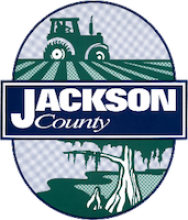Free Speech, AI Slop, and Media Power - Episode 661 of the Community Broadband Bits Podcast

In this episode of the podcast, Chris is joined by freelance journalist Karl Bode and ILSR’s Jordan Pittman for a wide-ranging conversation about the future of the Internet.
They dig into the dangers of government overreach on free expression, the precarious role of Section 230, and how media consolidation threatens independent journalism.
The group also unpacks the rise of “AI slop” — low-quality, automated content flooding our feeds — and what it means for media literacy, democracy, and the way younger generations navigate the online world.
This episode was recorded on September 22nd when Jimmy Kimmel Live! was still suspended by ABC
This show is 31 minutes long and can be played on this page or via Apple Podcasts or the tool of your choice using this feed.
Transcript below.
We want your feedback and suggestions for the show-please e-mail us or leave a comment below.
Listen to other episodes or view all episodes in our index. See other podcasts from the Institute for Local Self-Reliance.
Thanks to Arne Huseby for the music. The song is Warm Duck Shuffle and is licensed under a Creative Commons Attribution (3.0) license








